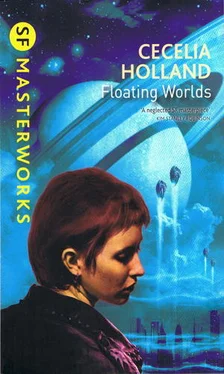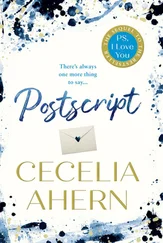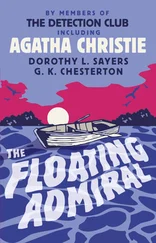In the corridor outside the travel office, Martian soldiers stood talking, rifles on their shoulders. Paula went past them, her head down. She wore An Chu’s clothes, even An Chu’s shoes, which pinched her feet. A lunch cart rolled toward her, and a soldier called out to the man pushing it to stop. The Martians gathered around the cart. There was an hourly stand against the wall between Paula and them. She took the card-folder out of her pocket and thumbed a dime from the coin slot. She bought an hourly. The Martians were buying hot rolls and minjis from the cart; the pusher clicked change from the machine on his belt. She dropped the hourly and stooped among the Martians to pick it up, and thieved two handfuls of rolls off the bottom shelf of the cart.
Outside, the loudspeaker on the corner of the building was playing high-spirited marching music. She walked along the side of the building, past the line of people waiting to get into the travel office. Bunker had waited nearly two hours for three minutes of diversion. The ground was scattered with discarded hourlies. She threw away the one in her hand.
Bunker caught up with her at the end of the walk. From habit they went along twenty or thirty paces apart, not talking. An air car buzzed overhead; on its side was the blue star of the government. They went down through the waste land toward the Nikoles Building.
An Chu lit the candle. The ends of the narrow room stayed in deep shadow. The little door that led to the underground building was open, a square cut in the wall, through which Paula could see the pipes and canisters of the garbage-eater under Jennie Morrison’s kitchen sink. The flat beyond was one small room, only a little larger than the secret room. The square of plastic that covered the door between them hung on the wall over it, and An Chu pulled it down and fastened it in place. Bunker pulled the stolen job-card out of the plastic folder.
“You got one,” An Chu said. “How?”
“Stole it,” Paula said. “The Martians are too easy.” She took the hot rolls out of her jacket and put them on the sway-backed cot.
“Do you have a magnifying glass?” Bunker asked. He sat on the head of the cot and peeled the plastic wrap off a hot roll. Paula ate a ham minji.
An Chu gave Bunker a pocket magnifier from the cupboard. She pushed the wing-door shut, sat on the bed, and took a roll out of its wrapping. “Meat. Wonderful.”
The folder lay open on the cot, its plastic windows full of other cards. While she ate the minji, Paula took eaach one out and looked it over. Bunker held the magnifier up to his eye and the job-card into the light.
“The green cards are for women, the white cards for men?”
“Green for civilian women, white for civilian men, blue for soldiers, red for Martian topshots.” An Chu sat on the bed beside Paula. Paula found a pocket in the back of the folder and took out three dollars. It was worthless; all the paper money was worthless.
A sharp knock banged on the door to the kitchen. Kneeling, An Chu unfastened the square cover from the wall and leaned it up against the foot of the cupboard. Jennie Morrison crawled into the secret room. Paula hardly knew her. She wore a bright green dress with her job-card pinned to her collar like a badge.
“I was stopped on the way here. They’re searching everybody.” She saw the food, the empty wrappers scattered on the bed. Her voice rose. “You’ve got food! What have you been doing—holding out on me?”
“Relax,” Paula said. She handed her a minji. “We just got back from the north.”
Jennie ripped off the wrapping. “And you ate it all. I do all the goddamn work—you people just sit around all day—”
“Shut up,” An Chu said. Bunker with a single ferret look at Jennie dropped to hands and knees and vanished out the hole in the wall.
“I’m going up in the head.” Jennie sat down on the bed. Her mouth was full of minji. “I know you all hate me because I’m working.”
“Nobody hates you.”
“You’re half-right,” Paula said. “You’re going up in the head.”
Jennie gulped food. “This is my house.”
“That’s my minji.”
“Shut up,” An Chu said to her.
Bunker forged a job-card and ration tickets for Paula, and she took them up to the public dispensa, across from the government building, stood in line, and brought back two loaves of bread, a pound of rice, a pound of dried vegetables, a gallon sack of milk, a pound of maxibeans, half a pint of oil: a week’s ration for a civilian woman. She and An Chu stowed the food away in the secret room. In the apartment, Bunker sat hunched over the table, the reading light aimed at the paper inches from his eyes. She went up behind him and watched him draw the curlicues on the upper-right-hand corner of a ration ticket.
“Don’t look over my shoulder.”
She moved away from him. An Chu was slicing bread on the counter at the kitchen end of the room. Paula went up to her.
“I have some honey,” the other woman said.
“Great.”
Bunker finished his work. He brought the sheet of blue ticket paper over to Paula. “There’s a man on the red wing who has a white card he’ll give me for twenty ration chits.” He reached for the bread. “Did you get meat?”
“They don’t have meat.”
An Chu spread a thin film of honey on a thin slice of bread. “Only the Martians get meat. The red cards and the soldiers. You need special tickets.”
The blue sheet was divided into two rows of five ration slips each. They were perfectly drawn. He used An Chu’s thick hairs for his brushes. Paula said, “You’re wasting your talent, rat, they hardly even look at them, they just tear them up and throw them in a box.”
He was biting into a slice of bread. “You’re eating, aren’t you?” His eyes were puffy, and his fingers stained with ink.
“I bought an hourly.” She took the folded sheet from her hip pocket. “Not a word in it about any fighting.” An Chu took it.
It was late in the afternoon. Paula could hear the people moving back and forth in the apartment above them. She got the paper shears from the desk and carefully separated the tickets. Bunker rubbed his eyes. “The other page is in the desk.”
Paula opened the desk drawer and took out the second sheet. Like the other, this was perfect, ten identical tickets; even the hairline flourishes on the capital letters were exact. She sat down and cut the sheet out. Stacking the tickets, she decked them neatly on the floor.
“Thanks,” he said, and took them from her and went out the door.
“He doesn’t talk much,” An Chu said. “I don’t think he likes me.”
“He never talks to me, either. It could be worse if he did, like Jennie. If she loses her job, can we stay here?”
“I don’t know.” An Chu fingered the worn mat flooring. Paula watched her Aztec profile. “There’s some dirty talk about rounding people up and sending them to work camps.”
“That’s just rumor. There aren’t enough Martians to do that.” She would not go back to jail. “What about Tony Andrea? Do you know where he is?”
An Chu raised her head. “Tony was arrested right away. They all were—all the known people like that. Especially writers. And you know Tony. He never shut up.”
“No, he wouldn’t.” She remembered him vividly, his bright blue eyes, telling her she had sold her soul. She went into the secret room, alone.
She removed her job-card from her collar. The name on it was Stella Dominac. While she stood thinking of Tony, the door behind her rasped back into the wall, and Bunker came in and sat next to her on the cot. He thrust a white card at her. The photograph had already been sliced off the surface. She ran her thumb over the raised numbers.
Читать дальше











